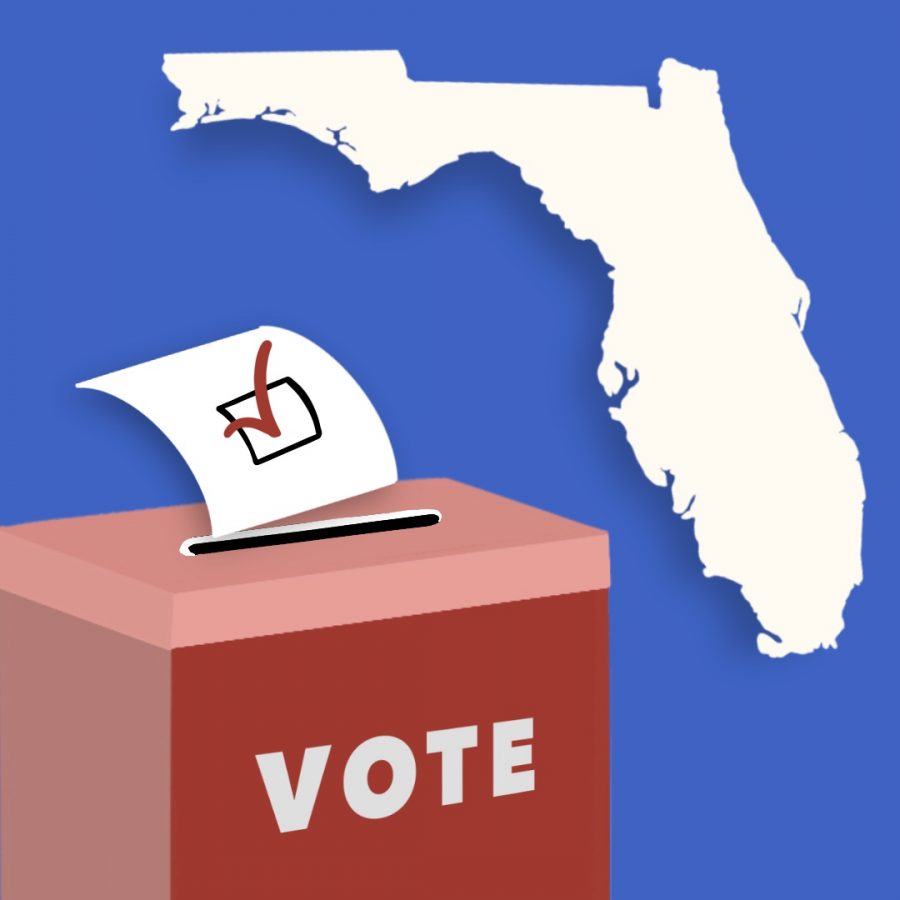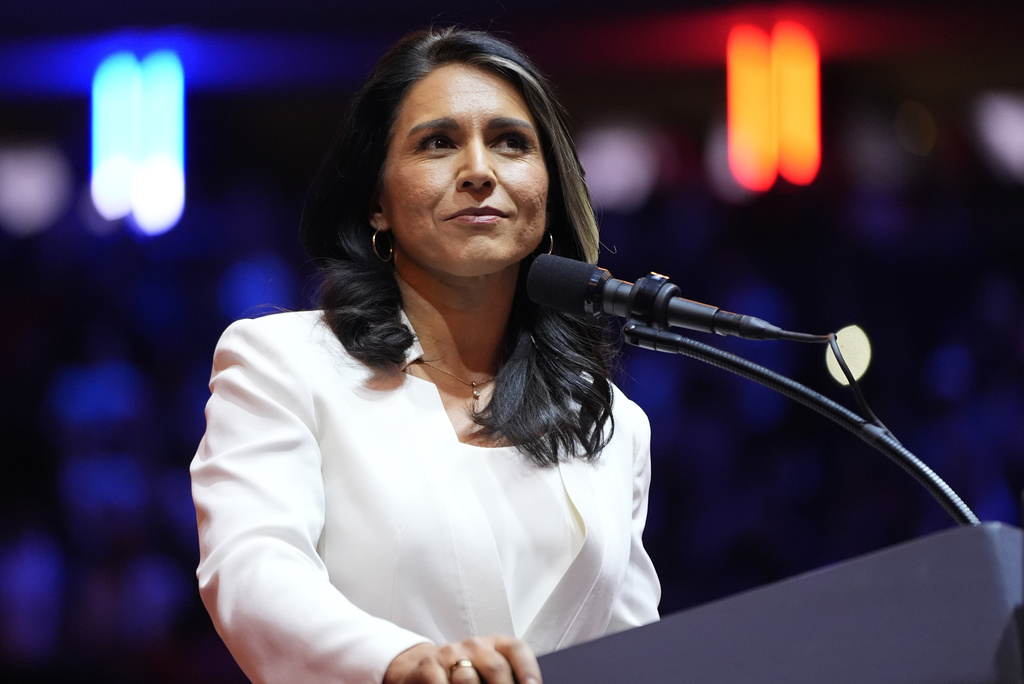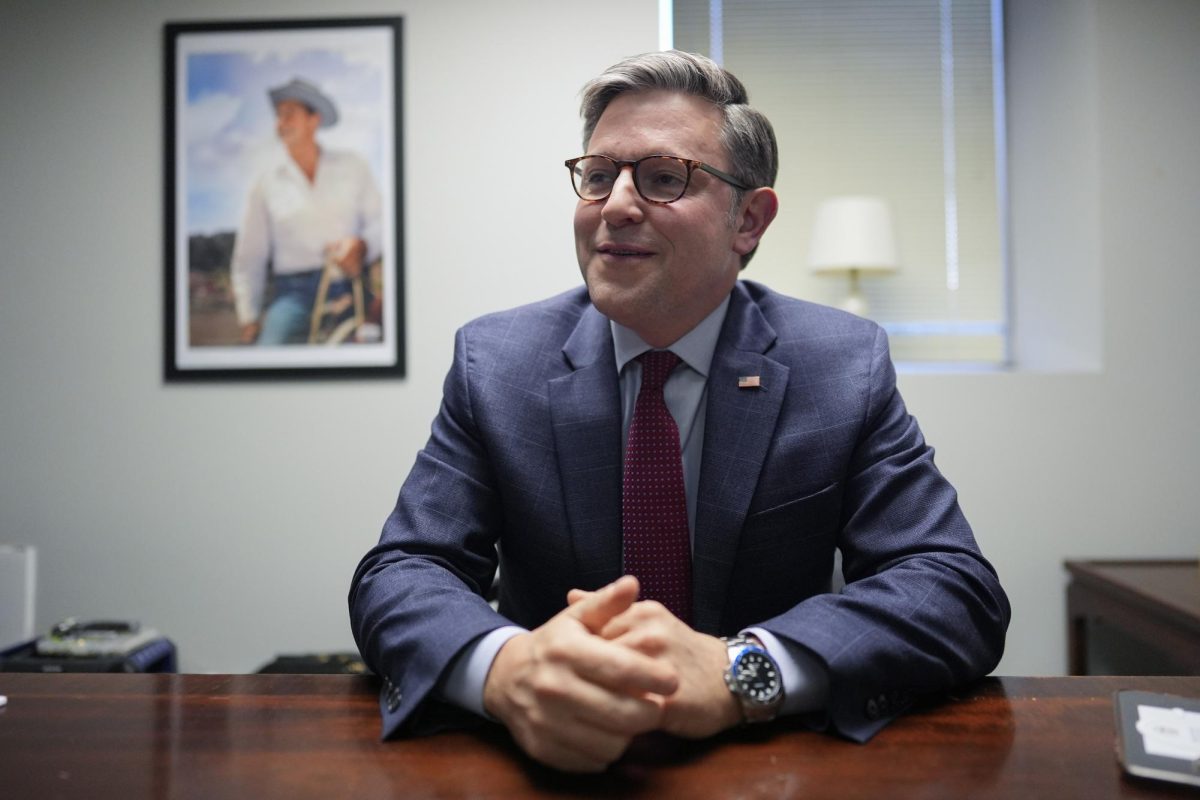A new Quinnipiac University poll conducted between Aug. 28 and Sept. 1 shows former Vice President Joseph R. Biden Jr. with a three point lead over President Donald Trump in Florida. This poll had a sample size of 1,235 self-identified likely voters with a margin of error of 2.8 percentage points.
The surveys were conducted by calling the landlines and cellphones of Republicans, Democrats, and Independents. A new poll also released by Marist College on Sept. 8 shows an even race. That poll had a sample size of 766 likely voters with a margin of error of 4.5 percentage points — this poll was also conducted using the cellphones and landlines of Republicans, Democrats and Independents.
The FiveThirtyEight forecast for Florida has seen some slight movement since the end of the Republican National Convention, as did The Economist’s 2020 forecast. Here’s a look at some takeaways from those two polls and what those two forecasts have been saying about Florida.
Most Florida voters have made up their mind
According to the Quinnipiac University poll, 93% of likely voters said their minds are made up, while five percent said they may change their minds between now and Election Day. Similarly, according to the Marist College poll, 97% of voters say they either strongly or somewhat support their chosen candidate — 2% said they may vote differently, and 1% were unsure. Is this because of the convention? We don’t know, we simply don’t have reliable polls conducted in Florida close enough to the convention. What we do know is that nationwide, the polls barely budged and ratings were down for both conventions.
Voters say they are most likely to vote in-person on Election Day.
According to the Quinnipiac University poll, 42% of likely Florida voters polled say they think that they will vote in person on Election Day, compared to 32% who think they will vote early by mail and 23% who think they will vote at an early voting location
The most important issues
According to the Quinnipiac University poll, 27% said that the economy is their most important issue, 19% said law-and-order, 15% said the coronavirus and 13% said racial inequality. The top two issues for Democrats were the coronavirus and racial inequality. For Republicans and Independents, it was the economy and law-and-order. In both polls, likely voters said they trust the president with the economy over Mr. Biden by a 13% margin. However, Florida voters trust Mr. Biden more on issues relating to racial inequality, crisis management, healthcare, and the pandemic according to the Quinnipiac University poll.
According to Marist College’s poll, likely voters polled believe that President Trump would deal with crime better than Mr. Biden, by a margin of three points respectively. When it comes to coronavirus and race relations, Biden leads by nine and 14 points.
Marist College poll takeaways
This poll of 766 likely voters shows an even race in Florida. 48% of likely voters said they will support the Democratic nominee, Mr. Biden. 48% also said that they will support Mr. Trump, 1% said they’ll support another candidate, and 2% are undecided. Biden is leading among all college graduate voters 55% to 41%, whereas Trump is leading among all non-college graduates polled 54% to 43%. Among voters under 45, both candidates are even at 48%. Mr. Biden is even with Trump at 49%-49% with voters 45 and older. Among voters 65 and older, Biden leads by one percentage point. According to this poll, among those who identified as “just independent” (meaning they don’t lean either to the GOP or the Democrats), Biden is performing strongly at 50% to 34% for President Trump. 7% are voting for a candidate designated “other” and 9% are undecided.
The FiveThirtyEight forecast
Before the convention on Aug. 17, Mr. Biden had a 65 in 100 chance of winning Florida according to the FiveThirtyEight forecast. It now has Mr. Biden’s chances of winning Florida at 60 in 100 on Sept. 9. This isn’t that dominant of a lead, and Biden is slightly favored to win Florida. It ticked slightly upward for Biden on Sept. 9, but this is likely insignificant in the big picture. Regardless, this isn’t a seismic shift and we shouldn’t assume this is a trend until we get more polling closer to Election Day.
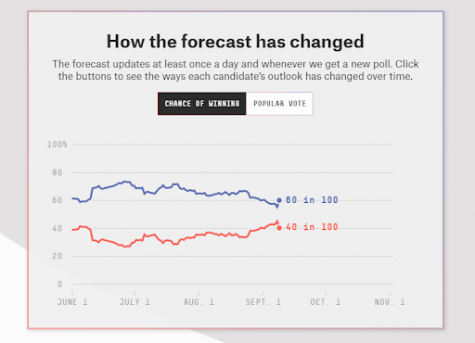
The Economist’s presidential forecast
A similar case has occurred with The Economist’s 2020 forecast. While this model is much more optimistic about Mr. Biden’s chances in Florida, it has seen a slight drop since Aug. 17. On that day, Mr. Biden had a 77% chance of winning Florida. However, as of Sept. 9, it forecasts a 71% chance of Mr. Biden winning Florida. We should remember that 30% is not impossible to overcome — the president could definitely still win Florida on Election Day. However, just like FiveThirtyEight’s forecast, this isn’t a seismic shift. We shouldn’t assume this is a trend until we get closer to Election Day.
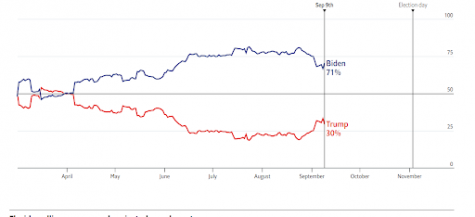
Obligatory reminders
There are still seven weeks until Election Day as of Sept. 9. As we get closer to Nov. 3, the averages and the polls will become more predictive, albeit not certain of the result. FiveThirtyEight, Quinnipiac University, Marist College and The Economist are all rigorously empirical, non-partisan entities, so they are trustworthy. They just aren’t perfect. Remember to vote on or before Nov. 3rd, and don’t let polls discourage you from voting. If you don’t want to vote in person, however, you can request a mail-in ballot. Information can be found here.
__
For more information or news tips, or if you see an error in this story or have any compliments or concerns, contact editor@unfspinnaker.com.



